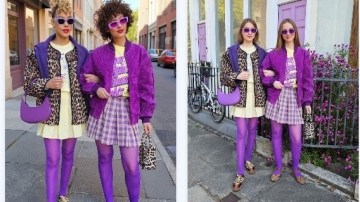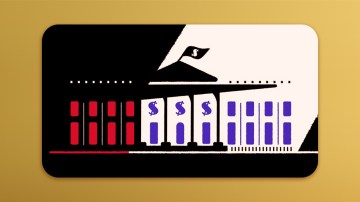This week, I checked in with execs and analysts to learn about the rapidly expanding beauty opportunity in the Middle East. This includes brick-and-mortar expansion by Ulta Beauty and TJX, product launches by Bubble, E.l.f Cosmetics and Tower28, and digital growth that topples the E.U. and North America. Additionally, Violet Grey acquires clean beauty retailer The Detox Market, Givaudan gets a new CEO, and 26-year-old beauty review website Makeup Alley shutters.
Beauty heats up in the Middle East with buzzy new plans, launches
A wave of high-profile brands and retailers are flooding the Middle East as the region experiences a surge in demand for new beauty offerings.
Retailers like Ulta Beauty and TJX, parent company to TJ Maxx and Marshalls, each plan to open their first brick-and-mortar stores in the region by the end of 2025. Meanwhile, brands like E.l.f. Cosmetics, Tower 28, Phlur and Bubble are actively expanding into the region through Sephora, which has seen runaway success in the Middle East stores it began opening in 2007.
The beauty industry is primarily focused on the six Gulf Cooperation Council states of Bahrain, Kuwait, Oman, Qatar, Saudi Arabia and the United Arab Emirates, with a strong focus on cities like Dubai, Abu Dhabi and Kuwait City.
“Sephora Middle East is the jewel of all the Sephora franchises; Dubai Mall is the No. 1 Sephora in the world, and it has been for the last 10 years,” Bonnie Szucs, Bubble chief commercial officer, told Glossy. “This is a consumer that lives and breathes every single type of social platform, and viral products thrive within the region.”
Bubble made its Sephora debut on Monday in the retailer’s store in Dubai Mall, currently the world’s largest mall. The store opened in 2008 and, according to Szucs, this Sephora location sees 20,000 visitors per day.
Dubai appears to be the industry’s easiest entry point, thanks to its wealthy and international residents. It’s estimated that around 90% of Dubai residents are expats. But the rush to the region isn’t just the beauty industry: Business registrations grew by 32% in Dubai during the first half of the year, according to The Dubai International Financial Center.
Szucs told Glossy that the needs of the Middle Eastern consumer are unique. Shoppers prefer to visit brick-and-mortar stores over shopping online and spend the most when given personalized attention and in-depth product education by sales associates.
“There is this beautiful culture of cross-generational shopping where they want the in-store experience, the displays, the samples and the [limited-edition] kits,” Szucs said. She told Glossy that this is a customer that discovers products on social media, through brands and influencers, then converts to sales through dynamic, educational experiences in-store.
The Middle East and North Africa beauty industry was valued at $46 billion in 2024 and is estimated to reach $60 billion this year, according to Euromonitor International. According to Oxfam, the Middle East and North Africa’s super-wealthy doubled their wealth between 2019 and 2022.
According to Mintel market research company, 71% of Saudi adults believe that the more expensive a product is, the higher its quality, compared to 43% of U.S. adults. Meanwhile, 42% of Saudi consumers reported spending more on beauty products and toiletries in 2024 compared to previous years.
The region is also growing its social media reach. According to Launchmetrics, the Middle East’s media impact value — the calculation the firm uses to track social growth and reach — grew by 136% during the first half of the year, while growth in France hit 11%, U.S. growth sat at 4%, and China dipped 14%. Top brands include Huda Beauty, NYX, She Glam, Dior and ColourPop, while top creators include Asil Güler, Noor Naim, Narins, Shima Katouzian and Sara Alwari.
“Countries like Turkey, Saudi Arabia, Kuwait and UAE are leading this surge, fueled by a wave of local creators who are driving product discovery through culturally resonant beauty content,” according to data released by the firm in August.
As for retail expansion, Ulta Beauty is eyeing Dubai and Kuwait City in partnership with brand franchise operator Alshaya Group. It’s a playbook used by L’Oréal-owned NYX Cosmetics when it first launched standalone Middle East locations in 2017 with Alshaya Group. NYX currently has locations across six countries.
Similarly, TJX plans to open through a partnership with Dubai-based off-price retailer Brands for Less, which it took a 35% stake in last year. TJX is eyeing UAE and Saudi Arabia for new stores.
However, Bubble’s Szucs told Glossy that entering the region this week wasn’t easy, citing regulation and language as the main hurdles. “Regulatory is no joke,” she said. “Each country [within the GCC] has a completely different [regulatory protocol], and there is an incredible amount of nuance.” The team brought on additional regulatory resources and spent eight months completing the process. Then there are language barriers, especially outside of Dubai, where fewer shoppers speak English.
“We are definitely leaning into translations [into Arabic for subject lines, displays and educational materials],” she said. “[Our strategy is to] create content that isn’t going to feel exclusionary to somebody who’s looking at it from another market.”
Executive moves:
- Givaudan CEO Gilles Andrier, who has led the Swiss fragrance supplier for two decades, will retire on March 1. He will be succeeded by Christian Stammkoetter, current president of the Asia, Middle East and Africa market for food company Danone.
- Debbi Hartley-Triesch, Nordstrom’s evp and merchandising manager of the retailer’s beauty division, is set to retire after 35 years with the company. She has led beauty, home and accessories for the company for four years. Her successor has not been named.
- Marc Grannum is the new North America svp of commercial development of consumer brands for Henkel, parent company to DevaCurl, IGK, Joico, Schwarzkopf and others. He joins the company from Campbell Soup Company, where he was vp of sales.
News to know:
- Prestige beauty retailer Violet Grey has acquired clean beauty retailer The Detox Market and is reportedly in the process of buying retailer Cos Bar. The Detox Market has six brick-and-mortar stores and an e-commerce platform. The deal was quietly closed earlier this year, and The Detox Market alerted its vendors to the change via email earlier this week. Violet Grey was founded by Cassandra Grey in 2013. She purchased the company in September of 2024 from Farfetch alongside private-equity investor Sherif Guirgis. The Detox Market founder Romain Gaillard is set to step down as CEO as former Bluemercury executive Tracy Kline enters the company to oversee Violet Grey and The Detox Market as group president.
- Actress Tilda Swinton is the newest face of Tom Ford fragrances. She will star in the Estée Lauder-owned company’s new perfume, Black Orchid Reserve.
- Makeup Alley, the 26-year-old beauty review website and community message board, will shutter at the end of September. As reported by Beauty Independent, the site struggled from ownership changes, social media competition and the proliferation of e-commerce review sections.
- Sharon Chuter, founder of Uoma Beauty and diversity advocacy group Pull Up For Change, passed away on August 14 in Los Angeles. She is best known for her pandemic-era beauty industry leadership around diversity and inclusion, but her impact began when she was just 19 years old. After a cold email to Revlon, she partnered with the company to bring the brand to her native Nigeria.
- Athleisure retailer Alo is in the headlines this week for an age discrimination lawsuit brought by a former top Alo Moves instructor. Yoga instructor Briohny Smyth, who has 345,000 followers on Instagram, filed the suit in Los Angeles that alleges age discrimination, wrongful termination, unfair competition and the use of an unlawful arbitration agreement.
Stat of the week:
Fitness, wellness and sportswear retailer Dick’s Sporting Goods raised its full-year guidance on Thursday after reporting a 5% sales spike to reach $3.65 billion for the quarter ending August 2. This was driven by growth in average ticket value and transactions, said CEO Lauren Hobart. Announced in May, the company plans to close on its $2.4 billion acquisition of Foot Locker later this month.
In the headlines:
Bath & Body Works posts quarterly profit miss as costs weigh. Beauty brand Frilliance By Fiona Frills climbs 38,000% on TikTok and plots app launch. Magic Molecule secures private equity funding and acquires hypochlorous acid manufacturer. Weighted blanket startup Bearaby is pausing much of its production in light of 50% tariffs on India.
Listen in:
Glossy’s beauty team walks through the news stories that defined the industry this summer in this special episode of the Glossy Beauty Podcast. This includes strategy shifts within retailers like Sephora, Ulta Beauty and Target, plus a look at disappointing revenue at conglomerates like Shiseido and Estée Lauder Companies. The team also discusses the biggest acquisitions of the season, including Rhode, Dr. Squatch, Space NK and Touchland, and the tariff-related topics we’re watching as fall approaches.
Need a Glossy recap?
Ulta Beauty CEO: Target partnership revenue was ‘below 1% of sales’. Can Printemps New York revitalize the department store perfume counter? Victoria Beckham’s beauty-led growth sets the stage for longevity, strategic options. From American Eagle to E.l.f., brands prove social media is changing the advertising machine. L’Oréal-owned Essie’s sports partnership has generated 4 billion organic impressions. Jessie Pegula and Cameron Brink headline Gorjana’s new Sports Club ambassador program.




